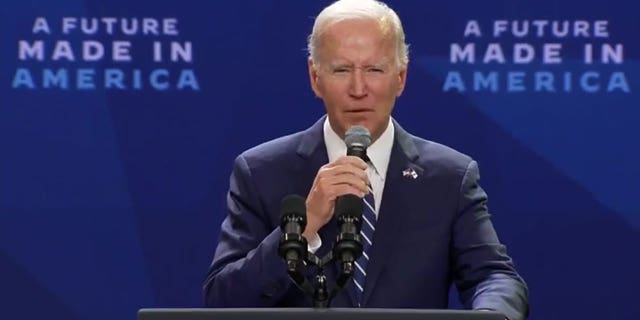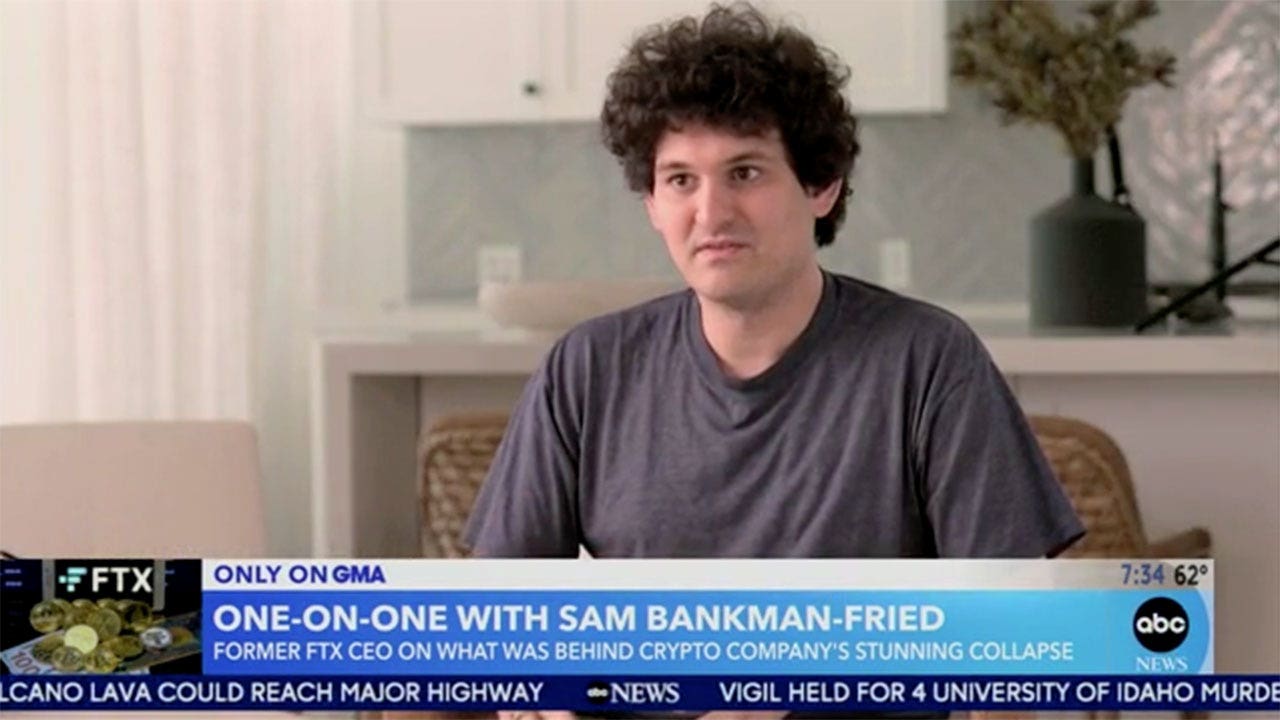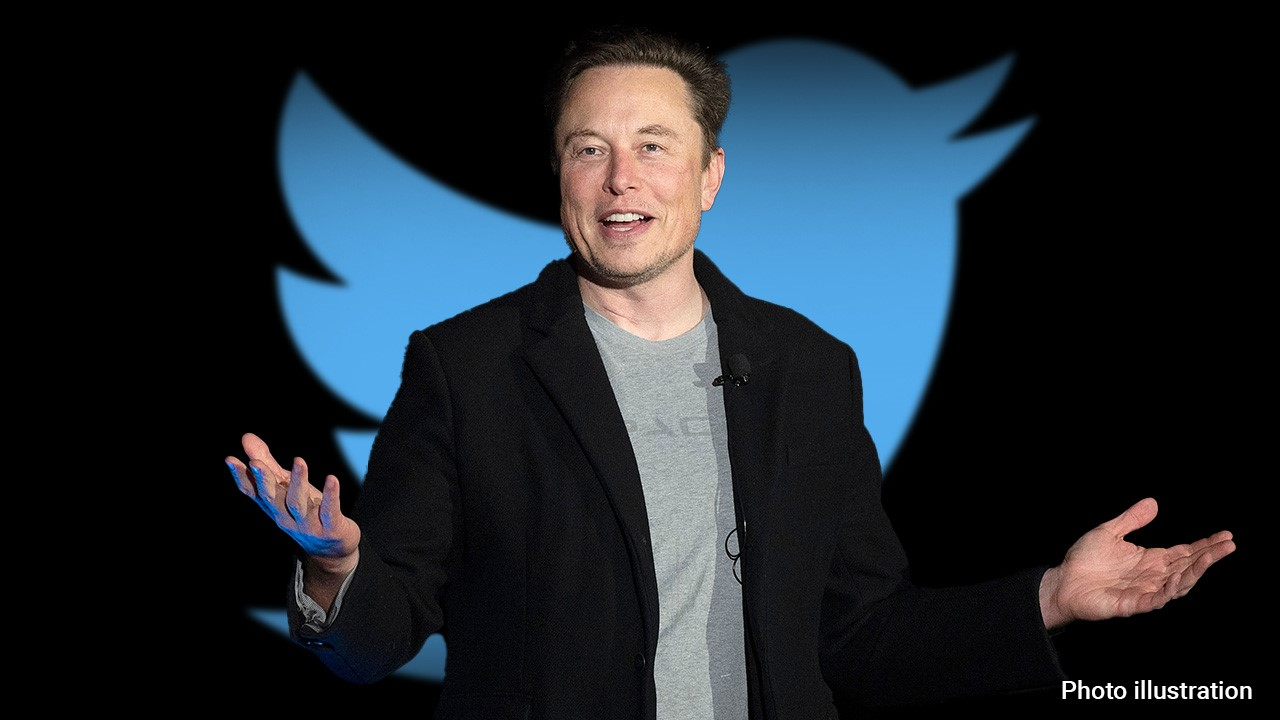The transportation industry is shouldering the burden of sky-high diesel prices, as suppliers blame supply chain shortages and red tape for impacting prices at the pump.
But President Biden has painted oil companies as the scapegoat for high gas prices, accusing them of hiking prices to enhance their profit margins, while critics have shot back accusing the administration of hampering American energy production.
South Carolina Trucking Association CEO Rick Todd joined “Fox & Friends First” to discuss the need to invest in U.S. energy, even as progressives continue to plow forward with the green-energy agenda.
“We should… as a country take a longer-term view, do everything we can, put everything on the table,” Todd told co-host Carley Shimkus. “But in the meantime, stick with what works until you can replace it, and then make sure that when you do replace it, that it’s scalable.”
“Nobody wants to be force-fed any alternative technologies or anything until they’re done,” he continued. “So I think we put ourselves in this situation unnecessarily.”
Todd blamed bad policies, seasonal demand ahead of the holiday season, and the country’s refining capacity for soaring energy costs.
Experts worry the diesel shortage, which is the worst it has been in decades, will worsen already sky-high consumer prices as suppliers are forced to pass down the costs.
BIDEN BLAMES RUSSIA, SAUDI ARABIA FOR RISING GAS PRICES, TAKES CREDIT FOR RECENT DIP
Data released last week showed the U.S. has only 25 days of heating and trucking stockpile reserves. As a result, November delivery prices have already surged almost 40% for November.
“There’s no way any company can absorb cost increases like this, and any business that can’t pass on their costs isn’t going to stay in business for very long,” Todd said. “The larger fleets are a little bit better positioned to deal with these kinds of conditions, but the smaller fleets … 91% of the nation’s truck fleet, these companies have six or fewer trucks.”

President Biden spoke in Syracuse to tout a $100 billion Micron commitment to build a semiconductor.
(White House)
“So we’re really talking about Main Street-type businesses, and it’s a huge strain on them to be able to keep up with these costs,” he continued. “They try to pass them on, but rarely are they able to do it 100%.”
Biden has faced scrutiny in recent months for shifting the blame for the spike in prices at the pump. Namely, he has pinpointed Putin’s war on Ukraine and the OPEC+ decision to cut oil production as top villains.
RISING GAS PRICES: LOCAL NEWS HEADLINES ACROSS THE NATION HIGHLIGHT PAIN AT THE PUMP
Despite this, some critics have pushed back on his claims, urging him to tap into American energy production, so the nation does not have to turn to foreign adversaries for its key energy needs.
Mansfield Energy CEO Michael Mansfield echoed Todd’s sentiment regarding the nation’s refining capacity, and also mentioned the supply chain shortages and regulations as barriers to lower prices.
“There’s simply a shortage of product there as compared to three years ago,” Mansfield told co-host Brian Kilmeade. “The economy’s come back a great deal since the pandemic, but refining capacity in the United States is about… a little over a million barrels a day of less capacity than we have had in the past. There’s been several refinery shutdowns.”
“These refineries won’t come back online and the product is not as available as it once was, so we have to import more or just simply pay higher prices,” he continued.
CLICK HERE TO GET THE FOX NEWS APP
Mansfield reiterated the need to look at price fluctuations through an economic lens, as opposed to a political one.
“I think there’s a lot of misinformation about how this industry works and… where profits are created or not created,” Mansfield said. “I do think this industry does an extraordinary job and is very innovative in trying to keep the country supplied, moving products around as efficiently and quietly as possible.”
“So yeah, it is worrisome, but I think it would be helpful to pay more attention to the actual supply-demand dynamics and less about the politics,” he continued.
 Iktodaypk Latest international news, sport and comment
Iktodaypk Latest international news, sport and comment









